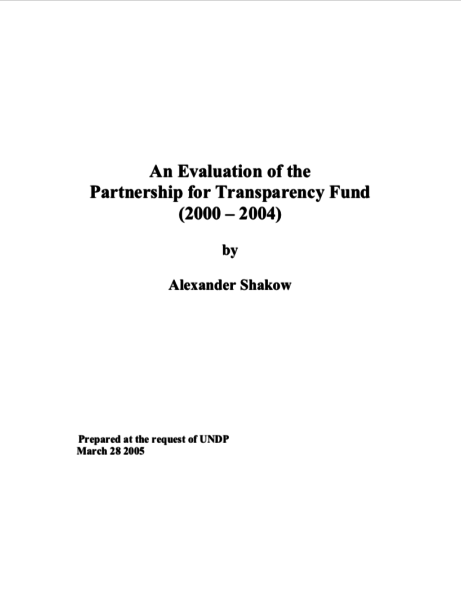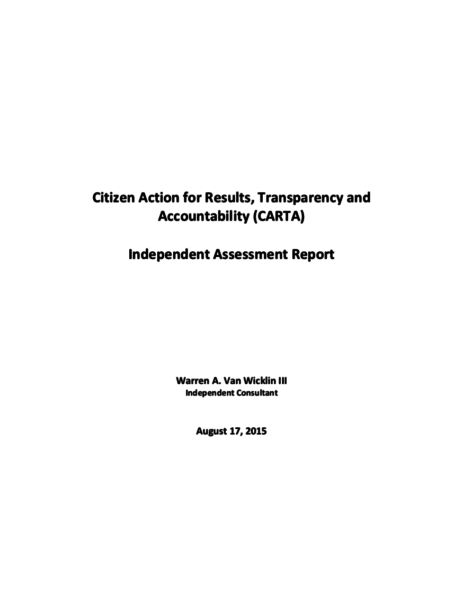
Citizen Action for Results, Transparency and Accountability (CARTA) Independent Assessment Report
The Citizen Action for Results, Transparency and Accountability (CARTA) Program was funded by a US$1.9 million grant from the Japanese Social Development Fund (JSDF). The grant was managed by the World Bank. CARTA started in mid-2011 and will be completed by November 30, 2015 after it was extended by more than one year. The World Bank chose the Partnership for Transparency Fund (PTF) to implement the CARTA Program. The CARTA Program objective was “to enhance the development impact, sustainability and client ownership of pro-poor projects financed by the World Bank in Bangladesh and Nepal, by promoting civil society organizations’ engagement, experience and capacity to demand better governance.” The subprojects are the main reason for CARTA, by far the largest component, and the component where impacts can be clearly assessed. As part of the grant agreement, PTF was required to contract an independent assessment of the subproject component of CARTA. This report is on that assessment. This assessment was based on a desk review. It is based on a review of documents and interviews with a variety of stakeholders.
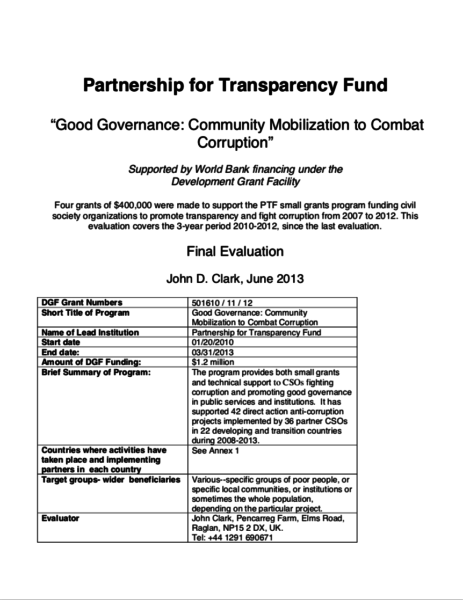
Independent Evaluations of PTF Projects
Key finding: “Donors should allocate sufficient funding to the Partnership for Transparency Fund (PTF) (and to other similar non-governmental organizations—NGOs—who respond to civil societies’ governance initiatives) to foster a more secure funding base for civil society organizations—CSOs—who demonstrate courage and innovation in tackling corruption.”
John Clark, an international development consultant, former civil society activist and adviser to former UN Secretary-General Kofi Annan, was commissioned by the UK’s Department for International Development (DFID), and by the World Bank to evaluate PTF supported projects supported by our “Citizens Against Corruption” and “Good Governance: Community Mobilization to Combat Corruption” programs. PTF projects are assessed in terms of their effectiveness and impact, their sustainability, their replicability, their innovative approaches, and whether they truly represented value for money. In each area the reports find substantial accomplishments.
DOWNLOAD EVALUATION OF “CITIZENS AGAINST CORRUPTION” | DOWNLOAD EVALUATION OF “GOOD GOVERNANCE: COMMUNITY MOBILIZATION TO COMBAT CORRUPTION”
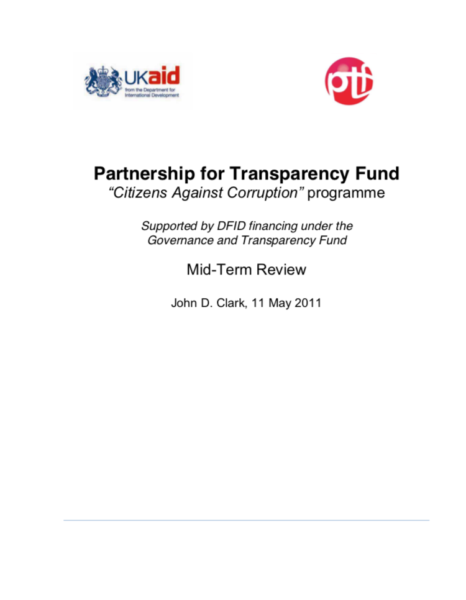
Independent Assessment of PTF’s Citizens Against Corruption (CAC) Program
PRIA Global Partnership has evaluated the performance of PTF projects in India. The report shows a comparative picture of the 12 CAC projects in the states of Karnataka, Kerala and Orissa based on the assessment of their performance at the end of the project period. Most of the projects dealt with issues of corruption in government schemes like Public Distribution System (PDS), National Rural Employment Guarantee Act (NREGA), National Rural Health Mission (NRHM), Forest Rights Act (FRA) etc. with an emphasis on promoting a more engaged and active citizenry to curb the same.
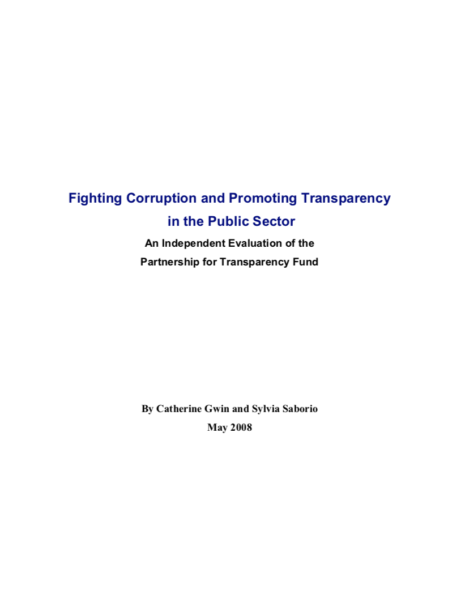
DFID Review of PTF: Innovative Support to Civil Society in Fighting Corruption
The UK’s Department for International Development has released a mid-term review of PTF’s Citizens Against Corruption (CAC) programme, which is supported by DfID’s Governance and Transparency Fund (GTF). The report stated that PTF “is able to point to specific reforms triggered by the projects. This is partly due to the very specific problems targeted and the careful guidance offered, but partly also because PTF emphasizes “constructive engagement” – hence structured and non-confrontational dialogue with officials is integral to the approach. Through this, “reform champions” have emerged who have helped secure the beneficial changes.”
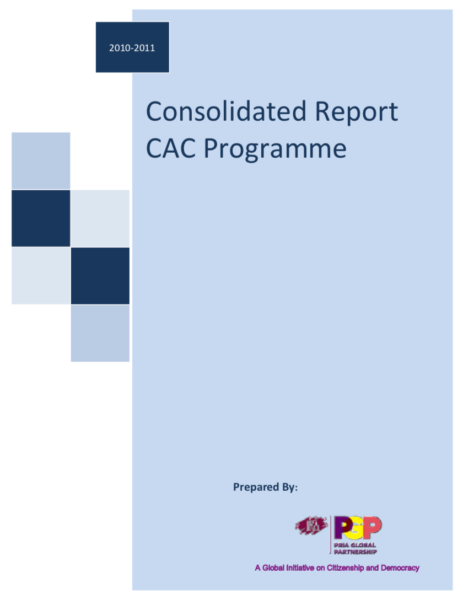
Fighting Corruption and Promoting Transparency in the Public Sector An Independent Evaluation of the Partnership for Transparency Fund
This 2008 evaluation by Catherine Gwin & Sylvia Soborio finds that PTF is a highly valuable and effective mechanism for support of small-scale civil society efforts to fight corruption and promote greater transparency and accountability in government. As an international NGO, it is well placed to provide support that is independent of vested political interests and not subject to political pressure. Through the use of unusually small grants, it has helped civil society organizations to innovate and do projects that they may not have been able to do before, and thereby enhances their experience, their visibility, and their voice. Some 25 of the 29 projects examined for this review achieved all or most of their objectives, which amounts to a success rate of 86 percent.
